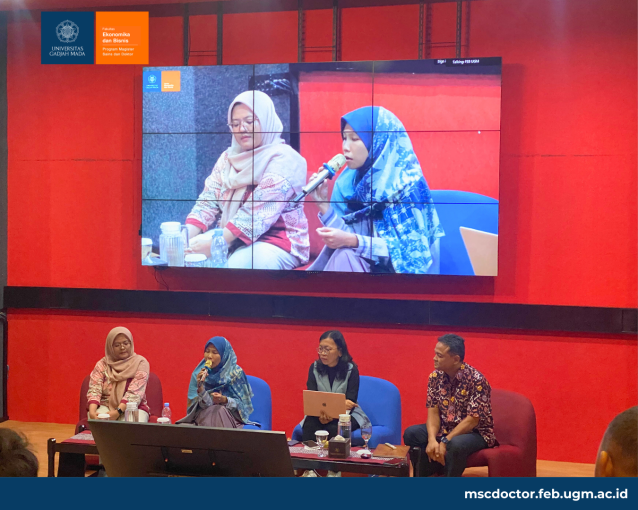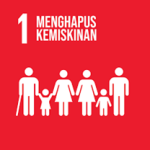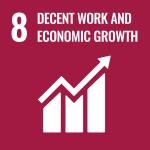
The Master of Science and Doctoral Program in Economics at FEB UGM, in collaboration with the Department of Economics, PPE RDSI, BersemIE, and Macroeconomics Dashboard, is organizing an event on February 13, 2025. T The event is themed “Evaluation of the 2024 Corruption Perception Index and Challenges in Combating Corruption in Indonesia,” featuring four speakers: Rimawan Pradiptyo, S.E., M.Sc., Ph.D., a lecturer at the Department of Economics at FEB UGM as well as a researcher and corruption observer, along with three students from the Economics of Crime program at FEB UGM: Tri Juli Astuti, S.E., Wida Reza Hardiyanti, S.E., and Iqva Anggraini, S.E.
This event was held in person from 1:30 PM to 3:00 PM (Western Indonesia Time) at Djarum Hall, Pertamina Tower, 6th Floor, Faculty of Economics and Business (FEB) UGM. The discussion covers factors influencing the decline or increase in the Corruption Perception Index (CPI), including regulations, law enforcement, and political culture. The experts will highlight major challenges in combating corruption, such as limitations of anti-corruption agencies, political influence, and public perception of government transparency.
The event demonstrates the importance of an interdisciplinary approach to understanding the phenomenon of corruption, including the economic perspectives offered by the Economics of Crime program at FEB UGM. This program is unique as it integrates economic analysis into the study of crime, providing tools to understand the economic motives behind criminal and corrupt activities. Using both quantitative and qualitative analytical methods, students are equipped with the ability to critically and effectively evaluate anti-corruption policies.
The Economics of Crime program at FEB UGM provides critical insights into how economic policies can influence criminal behavior and vice versa, enriching effective public policy analysis. For those interested in becoming policy analysts, researchers, or professionals in anti-corruption agencies, this program offers a strong foundation in the theory of criminal economics and practical skills in data analysis.
The discussions in this event indirectly highlight the need for experts who understand the economic complexity of corruption. Therefore, the Economics of Crime program at FEB UGM serves as an educational solution to produce a generation of professionals capable of analyzing and designing data-driven and effective anti-corruption policies.



